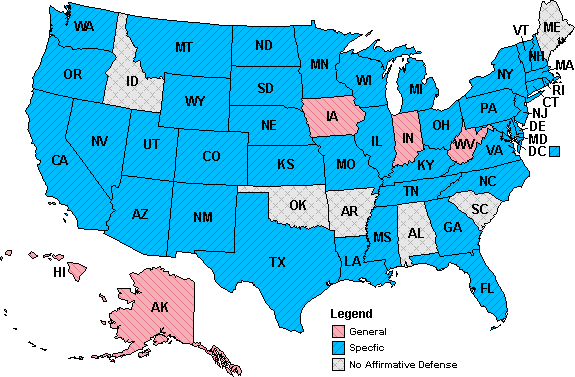
With the proliferation of fake IDs and underage sales to minors, state laws recognize the hazards retailers face for selling to minors with fake IDs. The majority of states now offer an "Affirmative Defense" for the sale to a minor with a false ID. Retailers can use this defense by showing that they inspected the false ID and came to a reasonable conclusion based on its appearance that it was valid. It's important to understand the word "reasonable" in this context. To better understand, we can take a closer look at what happens when an ID is checked for age and validity.
"Reasonable" means the care a prudent or careful person would adhere to during an examination of an ID and therefore relying on that to reach a conclusion. For the ID checking process to be reasonable, there are a few hurdles to pass. First, it seems simple enough, but the clerk or server must remember to ask for the customer's ID card. Second, the ID cards are inspected for both dates (date of birth and expiration date), which should be read accurately and calculated correctly against today's date. Third, the picture should match the person in your presence.
The problem arises when this process gets interrupted, increasing the chances for error. Also, not being familiar with an out of state ID card, multi-tasking employees, the peak rush hour crowd or simple human error are examples of everyday situations that increase your risk.
For these reasons, 11 states encourage retailers to use an electronic ID scanner that verifies Age and ID. These states realize that the affirmative defense is made stronger when a transaction is documented with an ID scanner versus visual verification alone. Regardless of where your business operates, the affirmative defense is available to retailers in almost every state (see map below).
In today's environment, easily minimize risk with an ID scanner incorporated into your ID checking policy. Taking a proactive stance and using an ID scanner not only makes the employee's job easier, it shows your local law enforcement and community that your business is responsible.
The following states provide an Affirmative Defense that include an ID Scanner clause: Arizona, Oregon, Ohio, Nebraska, New York, North Carolina, Pennsylvania, Rhode Island, Texas, Utah, and West Virginia.
Please note that some states prohibit the storage of ID data or limit the storage duration so you should check with your state.

Blue -State provides a specific affirmative defense for retailers- that the retailer inspected the false ID and came to a reasonable conclusion based on its appearance that it was valid. Of these states, 11 states include a specific ID Scanner clause.
This article is for informational purposes only and does not give legal advice. Check with your local or state liquor board/laws. The map was taken from the APIS ( Alcohol Policy Information System), a project of the National Institute on Alcohol Abuse and Alcoholism.